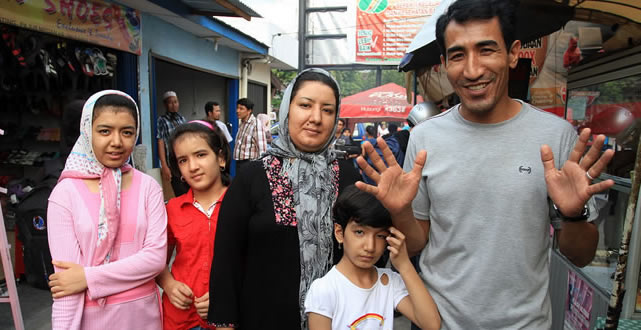The laws

The Laws
The Refugee Convention
Seeking asylum for protection from persecution is legal.
The United Nations 1951 Convention relating to the Status of Refugees (The Refugee Convention) was drafted in response to the many thousands of displaced people in Europe after the Second World War (1939-1945).
Under the Refugee Convention a refugee is a person who is:
- outside their own country and
- has a well-founded fear of being persecuted due to his/ her race, religion, nationality, member of a particular social group or political opinion, and is
- unable or unwilling to return.
Many countries, including Australia, have signed and ratified (legally implemented) the Refugee Convention. This means that countries are obliged to help individuals who are dislocated from their home country because of the threat of persecution.
By signing the Refugee Convention each country shows their intention to implement the legislation and policy that is required in order to support the refugee protection process. In Australia the law is implemented through the Migration Act 1958 (Cth).
Countries that are not signatories to the Refugee Convention have no international obligation to accept people seeking asylum, although many still do.
More information
UNHCR - A history of the UNHCR
Human rights
The Universal Declaration of Human Rights (UDHR) supports the right of all people to be able to seek asylum from persecution (Article 14). The UDHR fundamentally promotes that:
- basic rights and fundamental freedoms for all human beings are recognised in every country
- rights are inalienable and equally applicable to everyone
- every one of us is born free and equal in dignity and rights.
Although the UDHR itself is not a legally binding agreement, it is the founding document for more specific international human rights treaties and declarations, regional human rights conventions and domestic human rights legislation. Together these constitute a comprehensive and legally binding system for the promotion and protection of human rights.
Some of these include:
- the International Covenant of Civil and Political Rights
- the International Covenant on Economic, Social and Cultural Rights
- the Convention on the Rights of the Child (CRC)
The Australian Human Rights Commission is an independent statutory body that monitors government law and policy affecting asylum seekers and human rights. The Commission also helps to resolve complaints of discrimination and breaches of human rights under federal laws.
More information
United Nations - Universal Declaration of Human Rights
Australian Human Rights Commission - Asylum seekers, refugees and human rights: Snapshot Report (2nd Edition) 2017
Child Rights
Children, in particular, have specific rights that the Australian government is obligated to protect because it is a signatory to the Convention on the Rights of the Child (CRC).
Children have specific rights because they are more vulnerable to exploitation and abuse. In particular, children have a right to live free from violence, to be protected, and to have access to education and health care.
In Australia, UNICEF advocates for the rights of all children and works to improve public and government support for child rights and international development. Information for children about children’s rights and the Convention on the Rights of the Child is available from UNICEF Australia.
More information
UNICEF - Video: Children’s Rights
